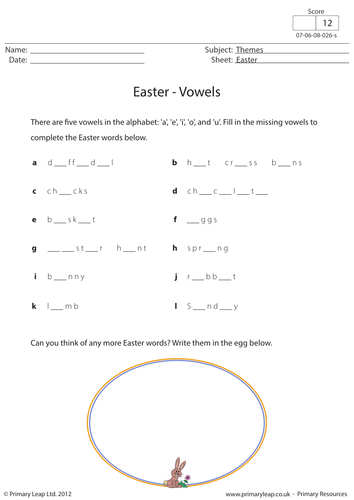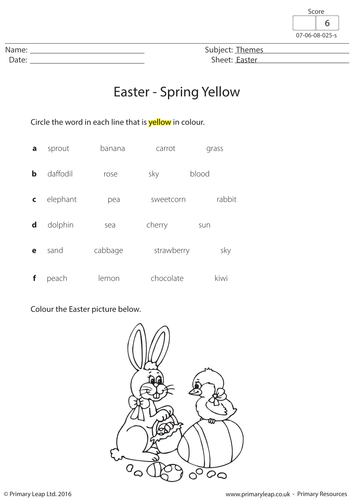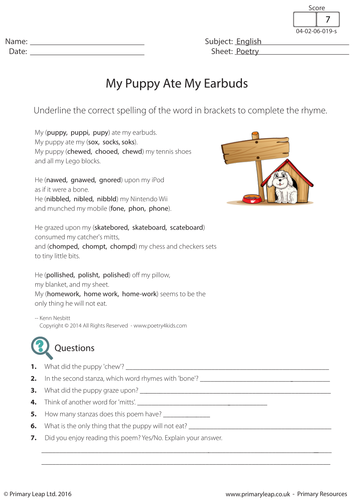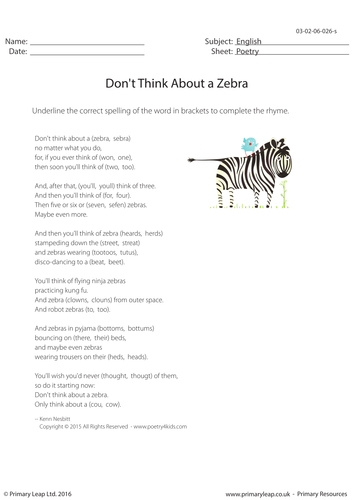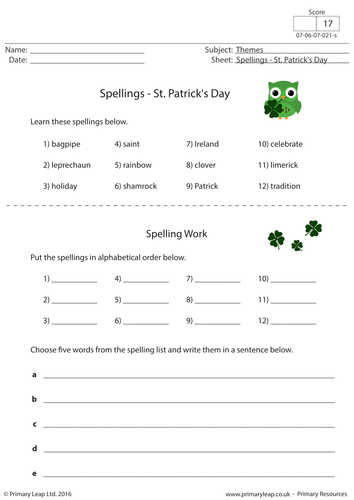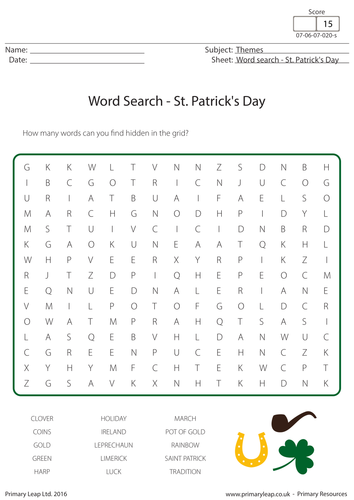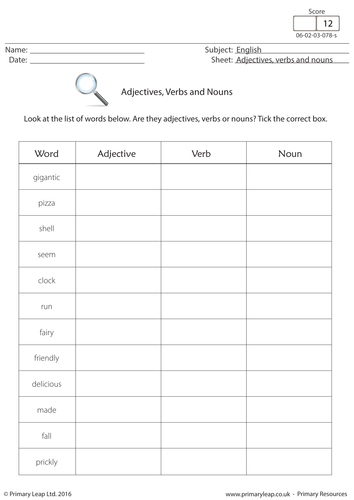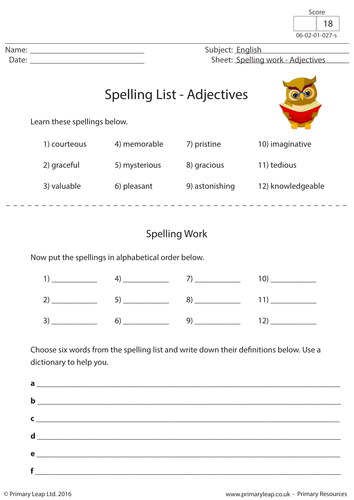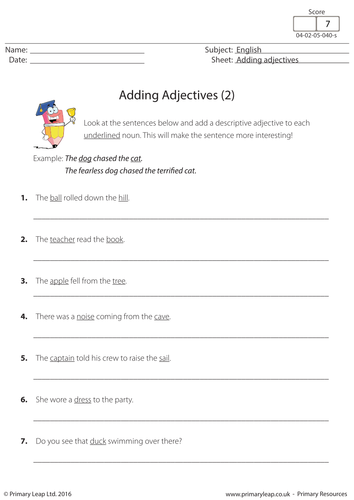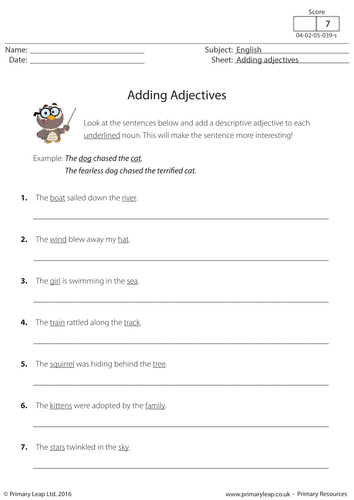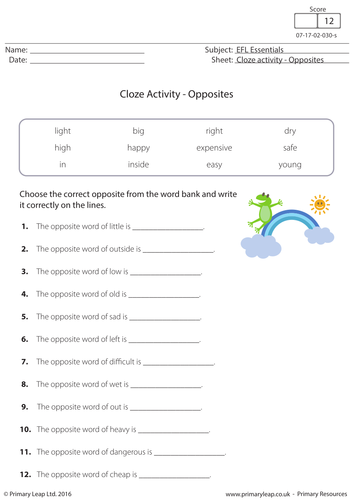560Uploads
455k+Views
211k+Downloads
World languages

English Resource - Missing Vowels: Easter
This English worksheet will help children learn their vowels. The words are associated with Easter and can be used as a fun Easter resource! This worksheet was created by primaryleap.co.uk

English Resource - Easter Spring Yellow
Students are asked to circle the word in each line that is yellow in colour. This English resource can be added to any English lesson or as a fun worksheet for Easter. Created by primaryleap.co.uk

Poetry - My Puppy Ate My Earbuds
In celebrating World Poetry Day this month, students can enjoy this fun poetry worksheet. This is a great activity for practicing rhyming. Students read the poem 'My Puppy Ate My Earbuds' and underline the word in brackets to complete each rhyme. They then have 7 questions to answer. This worksheet was created by primaryleap.co.uk

Poetry - Don't Think About a Zebra
In celebrating World Poetry Day this month, students can enjoy this fun poetry worksheet. They are asked to read through the poem and underline the correct spelling of the word in brackets. They are then asked to answer questions about the poem and complete a word search all about zebras! This worksheet was created by primaryleap.co.uk

Spellings - St. Patrick's Day
Spelling is important because it aids in both reading and writing. This spelling worksheet includes 12 spelling words that are all associated with St. Patrick's Day. Students learn the spelling and firstly put them in alphabetical order. They must then choose six words from the list and include them in a sentence.

Word Search - St. Patrick's Day
This fun word search includes words that are associated with St. Patrick's Day. See if your students can find all of the words hidden in the grid. To make it more interesting, see how many words they can find in a given time!

Adjectives, Verbs and Nouns
Look at the list of words below. Are they adjectives, verbs or nouns? Students are asked to tick the correct box.

Spellings - Adjectives
Spelling is important because it aids in both reading and writing. This spelling worksheet includes 12 adjectives. Students learn the spelling and firstly put them in alphabetical order. They then choose six words from the spelling list and write their definitions.

Adding Adjectives (2)
Students are asked to add a descriptive adjective to each underlined noun. This will make the sentences more interesting and is good practice for story writing.

Adding Adjectives (1)
Students are asked to add a descriptive adjective to each underlined noun. This will make the sentences more interesting and is good practice for story writing.

Cloze Activity: Opposites
Opposites help children in learning how to describe different things. This worksheet is a cloze activity all about opposites and can be used in any English language lesson. Students choose the correct word from the word bank to complete the opposites.

To, Too or Two?
Use to as a preposition before a noun or as an infinitive before a verb. Use too as a synonym for also or to indicate excessiveness before a verb. Use two to spell out the number 2. Students choose to, too or two to complete each sentence.

KS2 English - They're, there or their? (3)
This resource includes 10 sentences. Students must write the correct word in the spaces provided to complete the sentences and choose the correct they’re/there/their. This will help improve spelling and writing skills. Find more resources at Primary Leap

KS2 English - They're, there or their? (2)
This resource includes 10 sentences. Students must write the correct word in the spaces provided to complete the sentences and choose the correct they’re/there/their. This will help improve spelling and writing skills. Find more resources at Primary Leap

KS2 English - They're, there or their?
This resource includes 10 sentences. Students must write the correct word in the spaces provided to complete the sentences and choose the correct they’re/there/their. This will help improve spelling and writing skills. Find more resources at Primary Leap

Choosing the Correct Verb (1)
Students are asked to read the sentences and fill in the missing verb that correctly completes the sentence. There are 15 sentences to complete.

